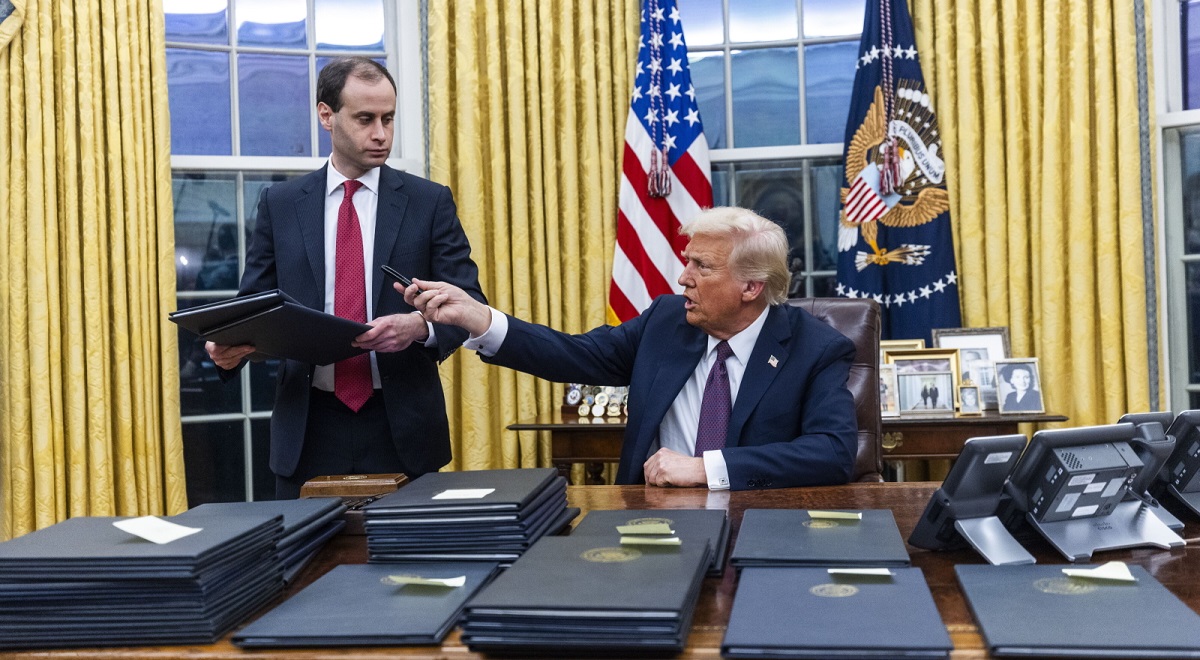By Stacy M Brown
Four years after the deadly January 6 Capitol insurrection, Donald Trump, now back in the Oval Office, has signed a sweeping pardon for approximately 1,500 convicted rioters. This unprecedented move, which includes high-profile figures like former Proud Boys chairman Enrique Tarrio, has ignited fierce backlash from law enforcement, victims’ families, and political leaders.
Nayib Hassan, Tarrio’s lawyer, confirmed his client is being processed for release from federal prison. Tarrio was serving a 22-year sentence for seditious conspiracy, one of the most severe charges brought against January 6 defendants. Despite not being present at the Capitol during the riot, prosecutors argued Tarrio played a key role in organizing the attack that left five law enforcement officers dead, over 140 injured, and the nation’s democracy shaken.
Trump has long referred to January 6 rioters as “hostages,” framing their convictions as politically motivated. Speaking to NBC News, Trump characterized the pardon as a “fun” start to his second term.
Law Enforcement and Victims’ Families Condemn Pardons
Former U.S. Capitol Police Sgt. Aquilino Gonell, who sustained injuries during the attack, called the pardons “a desecration of justice.” Gonell added, “Releasing those who assaulted us dishonors the sacrifices made by law enforcement.”
The brother of Capitol Police Officer Brian Sicknick, who died after the insurrection, also denounced the pardons. Craig Sicknick described the move as “a betrayal to all Americans” and accused Trump of celebrating the mob responsible for his brother’s death.
Former Capitol Police Officer Harry Dunn, who defended the Capitol that day, said Trump’s election win and subsequent pardons felt like “a gut punch.”
Broader Implications and Public Outcry
The Justice Department, which conducted the largest criminal investigation in U.S. history to prosecute the rioters, has charged 1,583 individuals, securing 1,270 convictions. Many of these cases involved felony offenses, including assaulting law enforcement officers and seditious conspiracy.
Trump’s actions have drawn sharp criticism from political leaders. President Joe Biden reaffirmed the importance of accountability, stating, “We’ve got to get back to basic, normal transfer of power.” Former House Speaker Nancy Pelosi questioned the pardons, calling it “strange” for a president to absolve individuals involved in an attack on democracy.
The move also raises concerns about the precedent it sets. Pardons restore civil rights like voting and gun ownership, potentially emboldening future acts of political violence.
A Nation Remembers
As the country reflects on the events of January 6, Gonell urged Americans to honor the sacrifices made by law enforcement. “These dishonorable elected officials are alive because of what officers like myself did, not because of the mob’s lack of trying,” he said.
“Remember the names of the officers who died and the families they left behind,” Gonell concluded.

